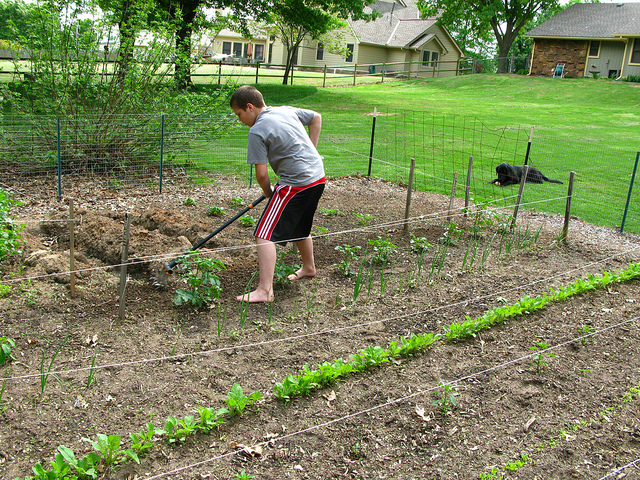
Whether or not children should get an allowance and have responsibilities around the house is a perennial question of parenting in the United States. Even within agreement about allowances, experts debate whether an allowance works best as positive reinforcement for the completion of chores or as a tool to teach children about saving and spending money. Unsurprisingly, when sociologists are asked to weigh in, they focus in on two core themes of sociology: community and inequality.
In a recent article in The Atlantic, Heather Beth Johnson hit on both of these themes. She notes that allowance, especially paying children for the completion of chores, is something that happens in affluent households more than non affluent ones.
“This isn’t happening in poor families,” she says. “They’re not like, ‘If you take care of your cousins, I’m going to pay you for it.’ It’s just expected that you would take care of your cousins if your cousins needed taking care of.”
That expectation that you do what others require you to do is part of a larger commitment to community. Johnson explains that individuals embedded in society have always had responsibilities to others, particularly to those in their family and other close communities. She worries that when parents frame helping the household as something that is deserving of a reward it may erode commitment to community obligations and increase entitlement among their children.
“When we pay [kids] to do things that humans have always had to do as participants of communities and families,” she says, “it sends them some sort of a message that they are entitled to [an] exchange for these things.”
Parents looking to do things differently may find it useful to look toward anthropology and child development for inspiration, since David Lancy has observed an almost universal desire to help in children approximately 18 months of age. Starting young may allow families to foster the expectation of helping others that has been the backbone of communities all over the world.

Comments 2
Mildred R. Holt — September 21, 2023
The concept of childhood chores as community obligations rather than purely monetary exchanges is a perspective that resonates deeply with me. It's crucial for children to learn the value of contributing to their community and family through actions that extend beyond financial gain.This notion reminds me of the power of childhood experiences discussed in a fascinating article I recently came across at https://www.theinspirationedit.com/the-power-of-childhood-experiences/. These experiences, including chores and responsibilities, can shape a child's character and understanding of their role in society.
Emilia — December 8, 2023
It seems to me that nowadays you just need to come up with a motivation for your child, and he himself will want to help you around the house. One of the best options may be garden zip lines, you can find more information on this topic here https://gardeniaorganic.com/best-garden-zip-lines-for-children-and-backyards/